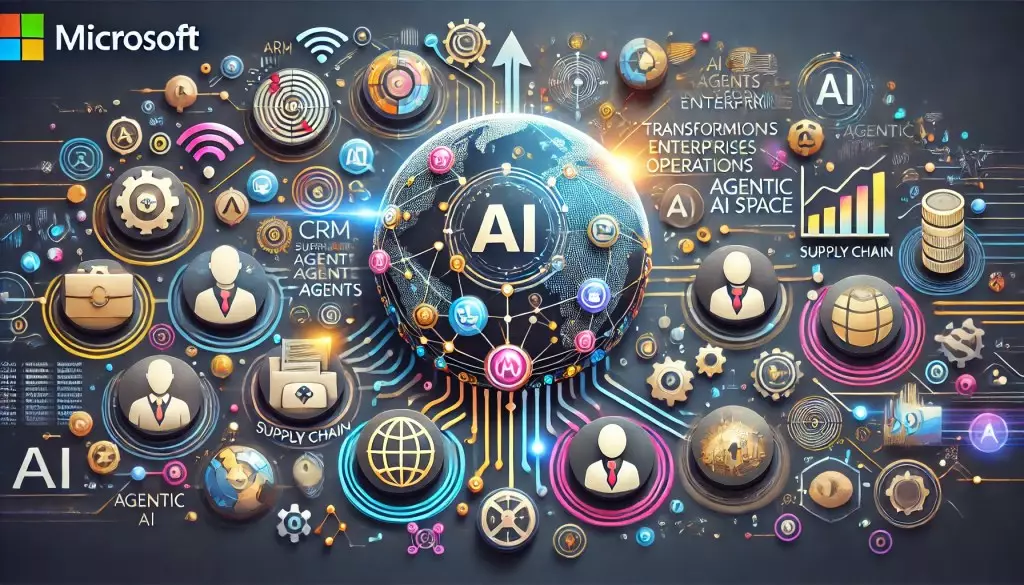At Ignite 2024, Microsoft made a significant announcement that sent ripples through the tech industry: the launch of ten autonomous AI agents designed specifically for enterprise environments. This move signifies a transition of artificial intelligence from mere conceptual frameworks to actionable tools that can facilitate complex business operations. Unlike many of its competitors, Microsoft does not just suggest a vague future potential of AI; it has delivered a robust product that promises to reshape how enterprises conduct their day-to-day activities.
One of the standout features of Microsoft’s AI agents is their pre-configured nature, which allows businesses to leverage their capabilities without the need for heavy customization typically associated with traditional solutions. This is a game changer for enterprises striving to optimize workflows in areas like customer relationship management (CRM), supply chain logistics, and financial auditing. Such pre-built functionality accelerates the deployment process and ensures that organizations can harness the power of AI almost immediately.
In a world where time is money, the ability to quickly implement technology that directly tackles specific business challenges cannot be overstated. The operational readiness of these agents offers companies a significant advantage, allowing them to capitalize on opportunities faster than their competitors who might still be in the trial-and-error phase of AI implementation.
The breadth of Microsoft’s ecosystem is another factor contributing to its competitive edge in the AI space. With an impressive catalog of 1,400 third-party connectors and support for over 1,800 large language models, Microsoft’s framework is not confined to its own tools; it encourages interoperability and customization across various platforms. This extensive model allows enterprises to tailor the AI agents according to their unique needs while enriching their workflows.
By harnessing its existing productivity applications and vast customer base, Microsoft is positioned favorably against other tech giants such as Salesforce and Google. These competitors may dabble in AI solutions but lack the cohesive ecosystem Microsoft has developed, granting it a decisive lead in the enterprise segment.
The arrival of these autonomous AI agents heralds the beginning of a new chapter in enterprise solutions. This not only raises the stakes for established players like Salesforce and ServiceNow, but it also poses a formidable challenge to startups that may have previously dominated specific niches in areas such as CRM or project management. Microsoft’s targeted agent capabilities are designed to offer direct competition to these specialized solutions, redefining the landscape of what enterprise software can achieve.
However, it is not merely a story of dominance. The rapid growth of Microsoft’s AI agent deployment underscores a collective shift in the business world toward embracing intelligent automation. With 100,000 organizations reportedly engaged in creating or modifying these agents—a number that has doubled within just the last quarter—the urgency for companies to adopt such technologies is palpable.
Interestingly, Microsoft is also reevaluating how it monetizes its AI solutions. By shifting from a token-based pricing scheme to one that focuses on ‘per message’ or even ‘per outcome’ strategies, the company is redefining the perceived value of its AI offerings. This transition challenges the traditional framework of assessing value based strictly on input and output, signaling a maturation of the AI market.
Such a pricing model may encourage companies to pursue more innovative use cases for AI, fostering a more profound integration of these tools into their core operations. By aligning the cost structure with tangible business outcomes, firms may find new avenues for using AI agents—not just as tools, but as fundamental components in their operational arsenal.
Microsoft’s bold introduction of autonomous AI agents at Ignite 2024 represents a pivotal moment for both the tech industry and enterprises at large. As these technologies shift from theoretical applications to practical implementations, they promise to redefine workflows and operational efficiency in ways previously thought unattainable.
While competition remains fierce, with players like Google and AWS eyeing Microsoft’s lead, the company has established a substantial foundation that is challenging to disrupt. As businesses continue to look for efficient, practical solutions to complex problems, the future of enterprise AI seems promising—yet competitive. The evolution is just beginning, and organizations will need to stay informed and adaptive to thrive in this rapidly changing landscape.


Leave a Reply